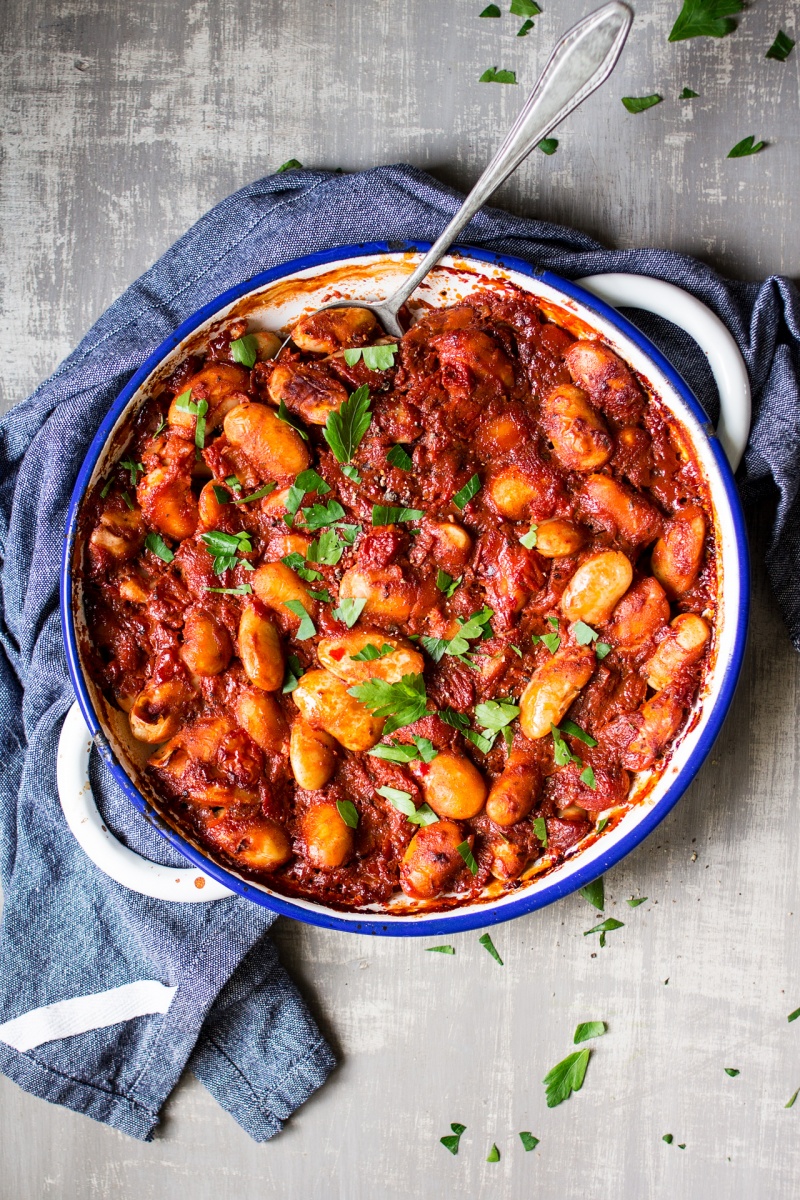
Being vegan during Greek Easter is hard. In the weeks prior to Easter, when all the fields are covered with lush grass and beautiful wild flowers, you see lots of sweet little lambs frolicking around, enjoying the spring sunshine and trimming the ‘lawns’. They seem so happy and carefree and it makes me sad when we drive past one week later and there are no more lambs… 🙁 .
We used to get invited to traditional Easter lunches but we cannot bear to watch a poor little lamb rotating on the spit while everybody around us goes on about how juicy and delicious the meat is and how much they love lamb (clearly not the happy and carefree kind). They will also be utterly confused as to why we don’t want to eat it or not even a bit of feta cheese.
It is ironic that a lot of modern Greeks do not seem to grasp the point of being vegan (or what it even entails) as the idea of abstaining from eating animal products stems from ancient Greece and in its agricultural past.
In fact, Greeks used to eat lots of healthy, beautiful meat-free dishes. Even today devout Greeks typically consume these plant-based dishes in the 40 days preceding Easter, although you get the sense that meat abstinence is a bit of a chore for them.
Gigantes plaki is the best example of these plant-based dishes and one of our favourite ‘mezedes’ (small plates). It’s beautifully fragrant, simple to make and utterly delicious! It’s a nourishing and satisfying meal with plenty of plant-based protein. It may seem like it takes a long time to make, but it really doesn’t – the oven takes care of most of the work for you! 🙂
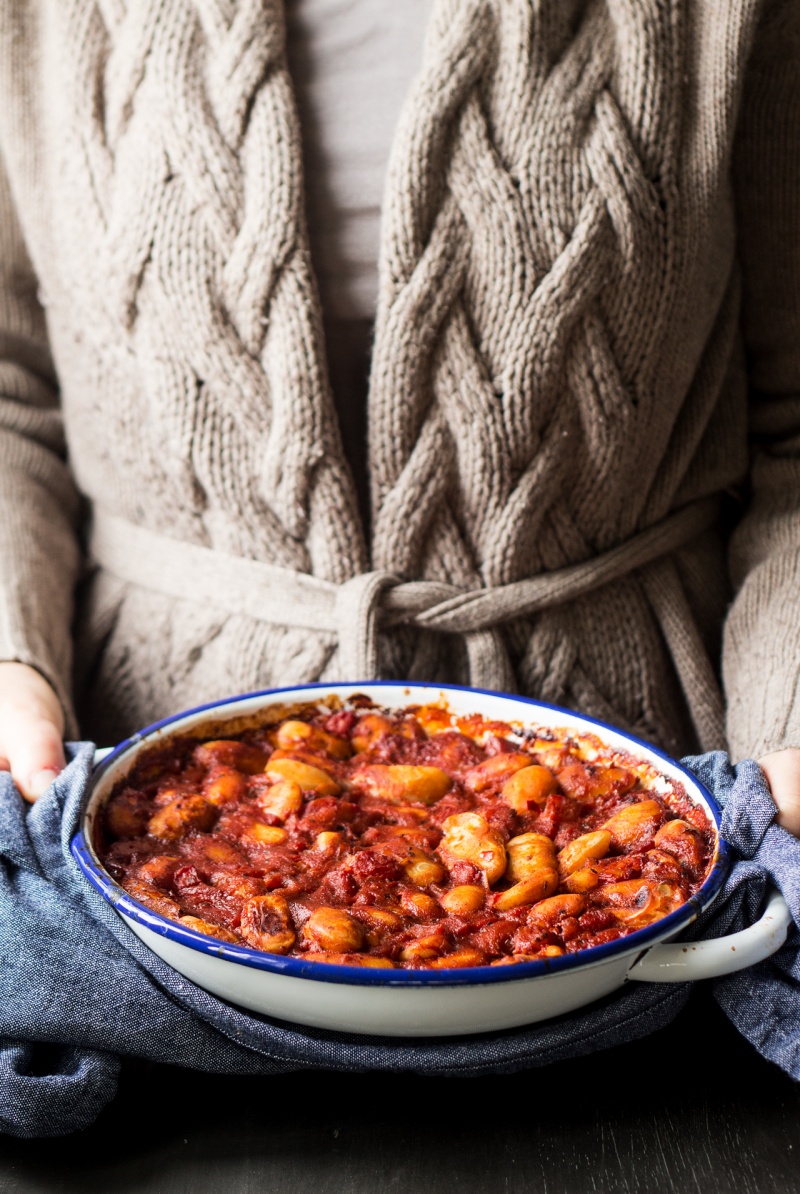
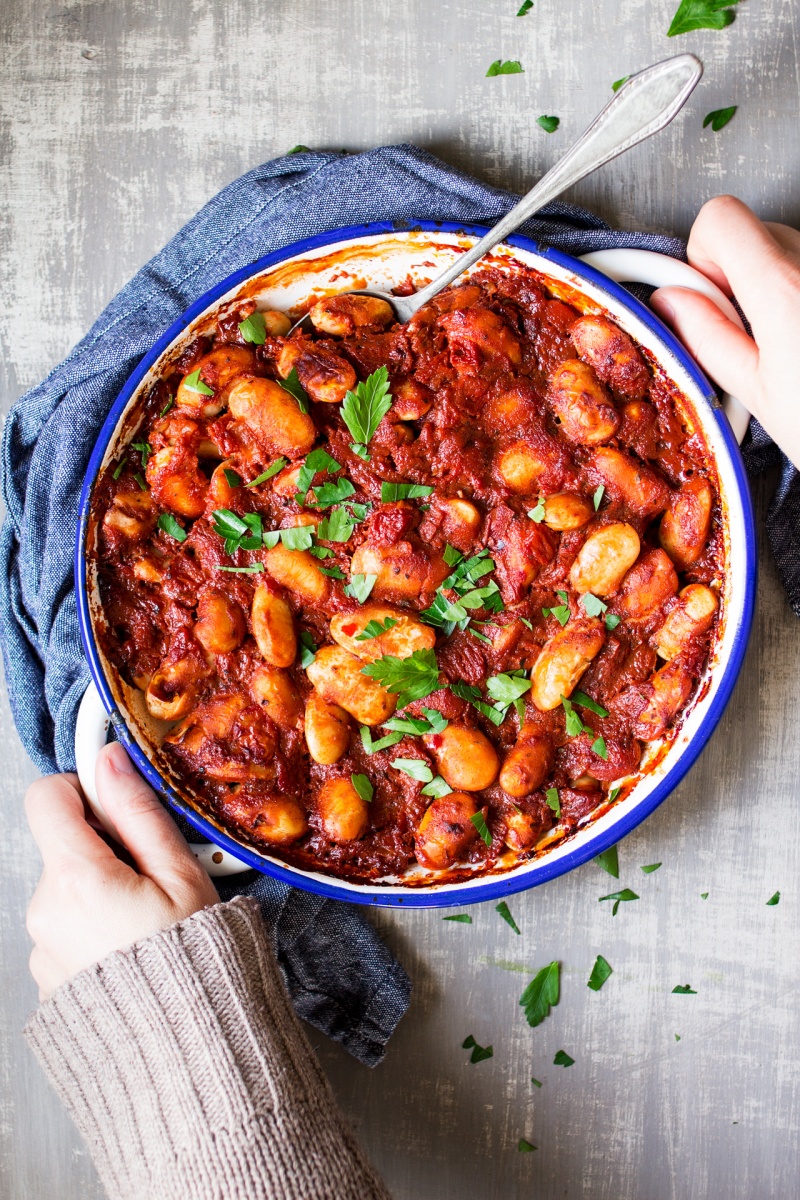
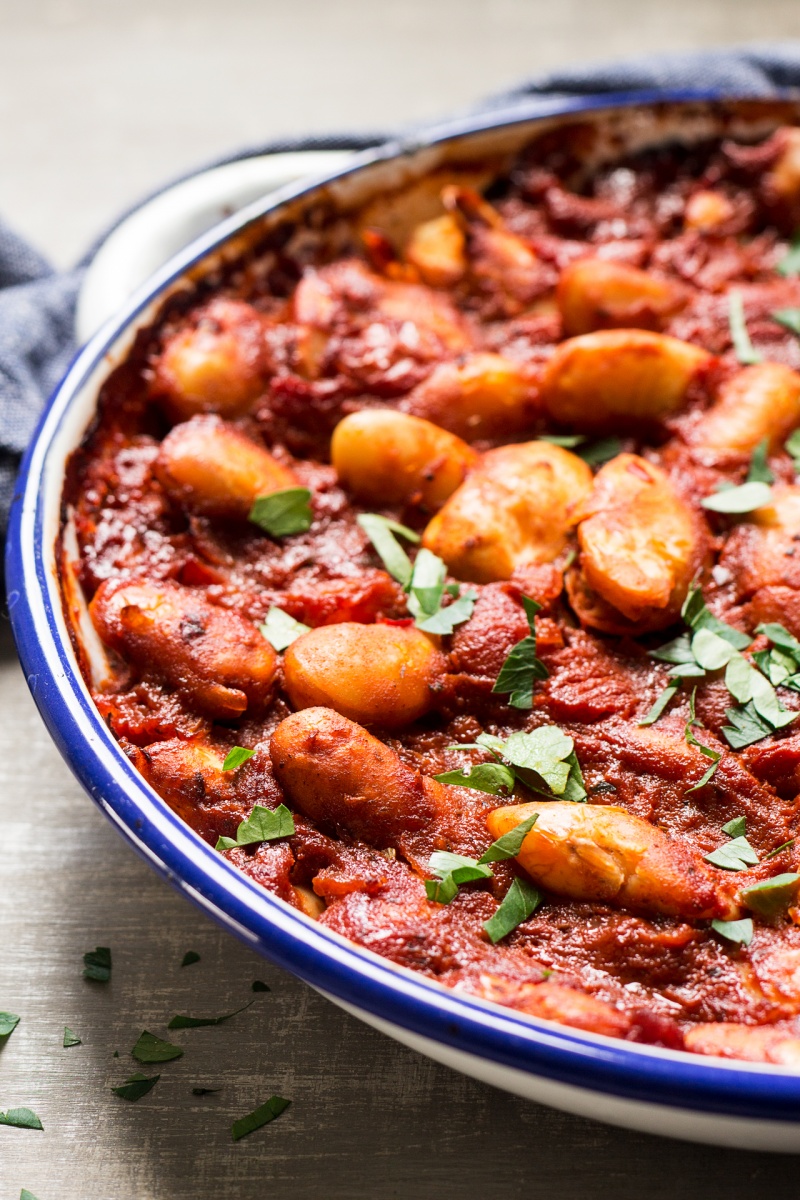
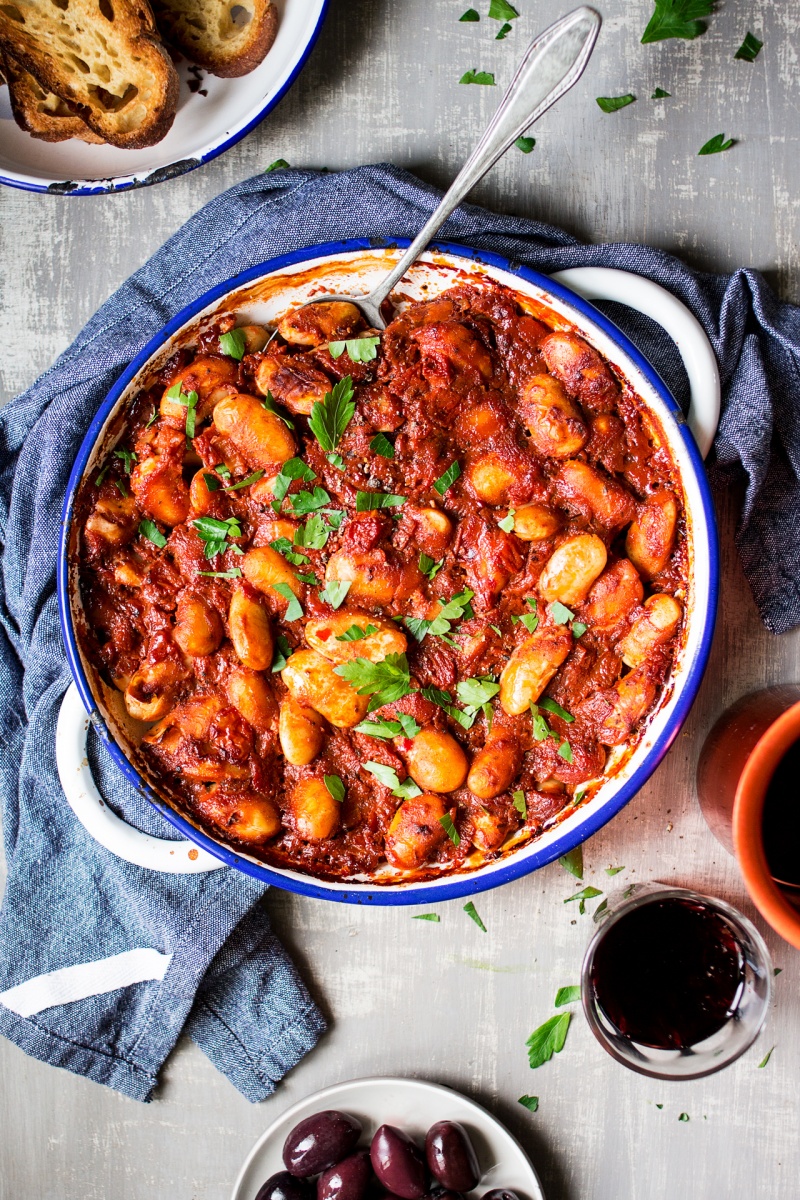
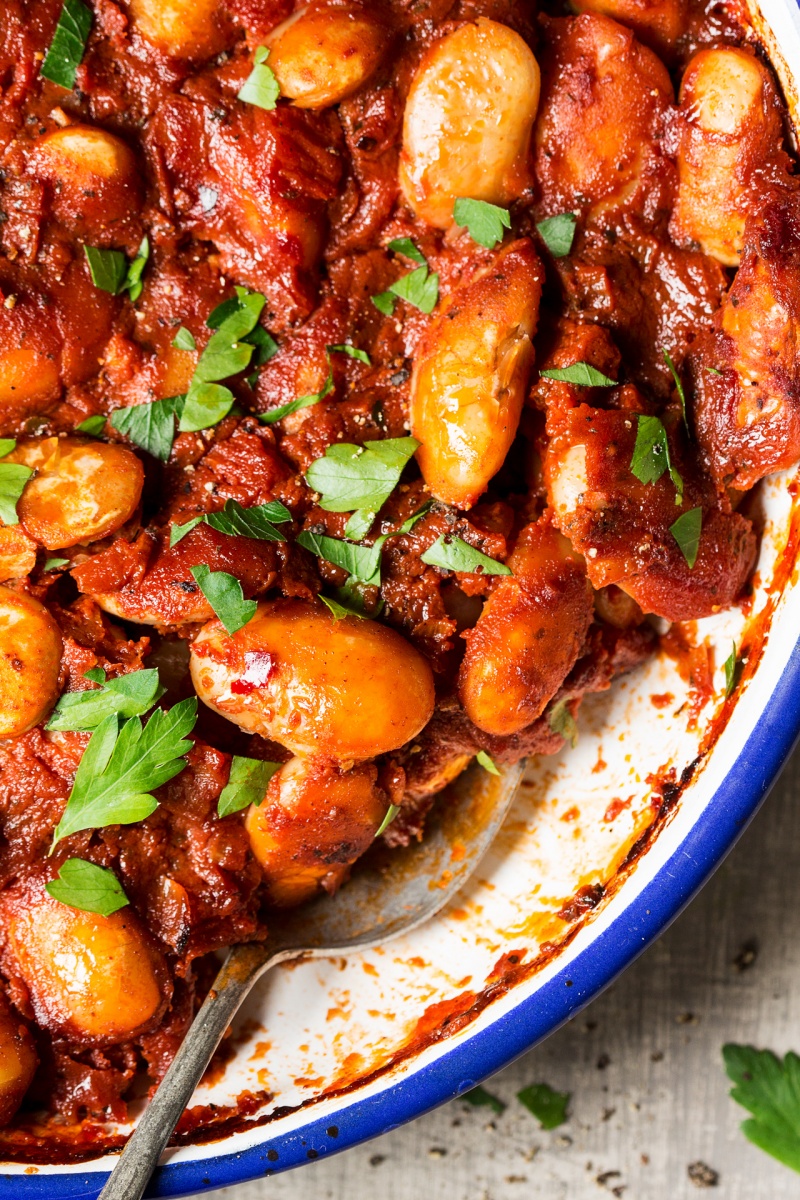
- 250 g / 2 cups dry giant / butter beans, soaked overnight
- 45 ml / 3 tbsp olive oil
- 2 x 400 g / 14 oz tins of chopped tomatoes*
- 1 tbsp tomato paste
- 1 small red onion, finely diced
- 3 cloves garlic, finely diced
- 1 tsp dried oregano
- 1 tsp ground cinnamon
- 2 tsp brown sugar or maple syrup (optional)
- a good pinch of chilli powder (optional)
- approx. 1 generous tsp fine sea salt
- few grinds of black pepper
- handful of parsley, finely chopped
- Discard soaking water and rinse the beans well. Put them into a medium pot and cover with plenty of water. Bring to the boil and then simmer (with a lid mostly covering the pot) for about 45 minutes (make sure you gather the foam that has come to the surface and discard it). At this stage, the beans need to be cooked ‘al dente’ as they will finish off cooking in the oven.
- Heat up olive oil in a medium frying pan. Once hot, lower the heat and add chopped onion. Fry on low heat until translucent, stirring from time to time. Add in garlic and fry for another minute or two.
- Decrease the heat to low and add in cinnamon and chilli (if using) to the onion and garlic mixture. Fry for another minute, coating the onion and garlic in the spices. Stir often as spices are dry spices and burn easily.
- Pre-heat the oven to 180° C / 355° F.
- Add in tomato paste, diced tomatoes, oregano, salt, sugar (if your tomatoes are a bit too tangy) and pepper. Simmer for about 30 minutes – until tomatoes are starting to thicken. Add in drained beans and mix everything together.
- Transfer the mixture to an oven safe dish adding about ½ cup of bean cooking water. Stir through well.
- Bake for about 1 hr, until the sauce has thickened nicely and the beans are soft and creamy.

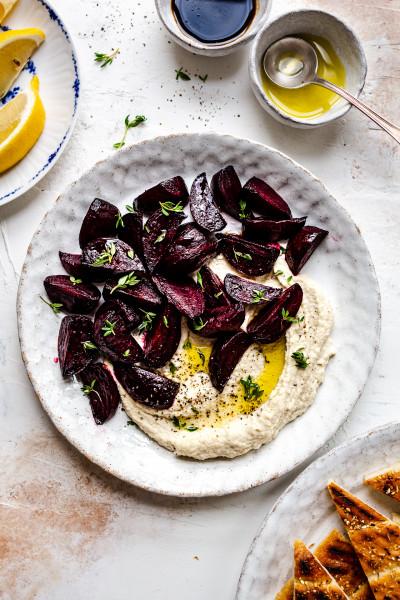
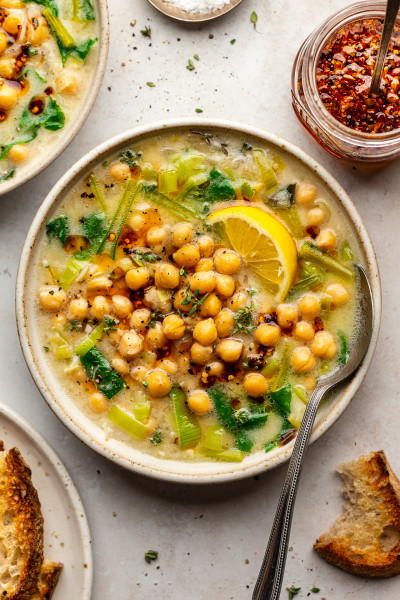
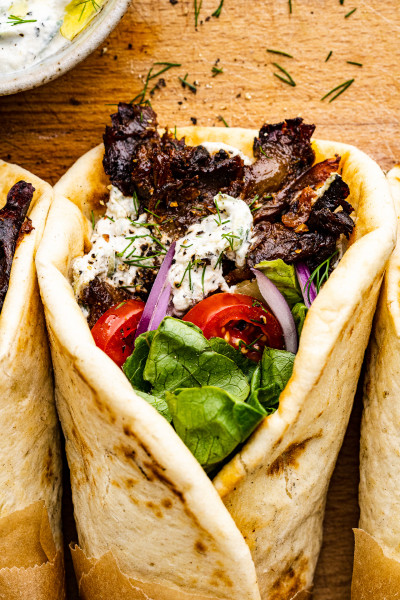
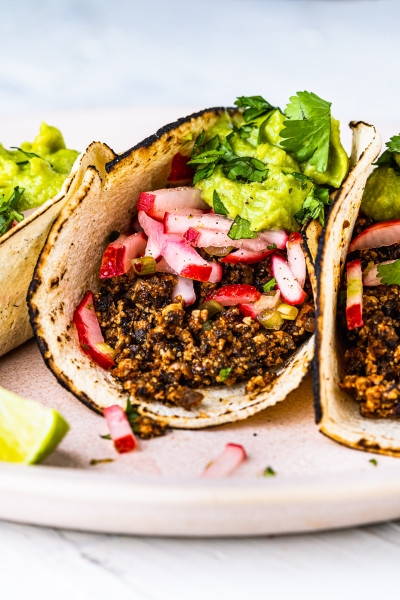
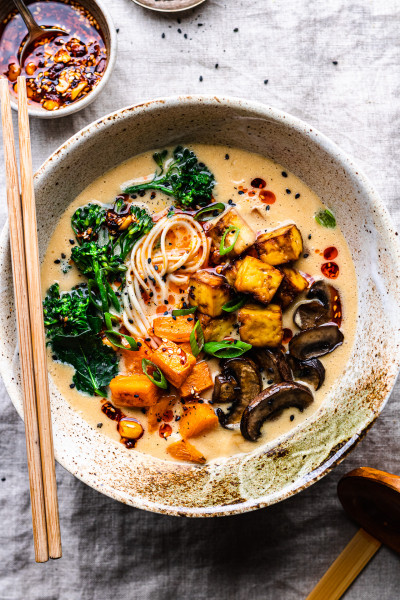
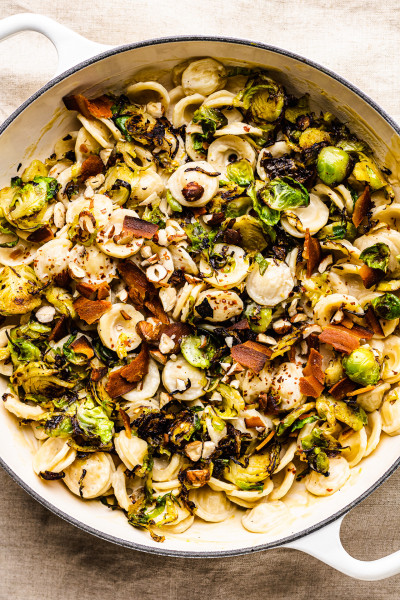
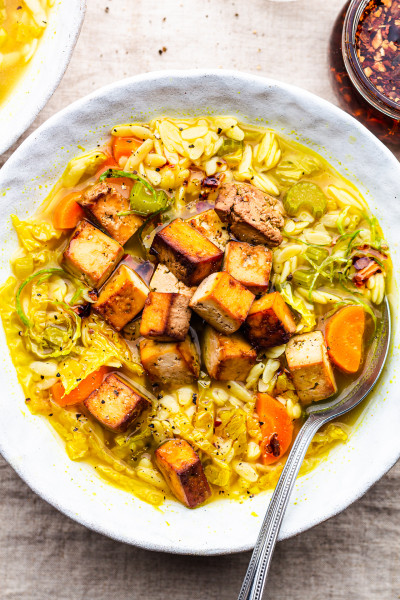
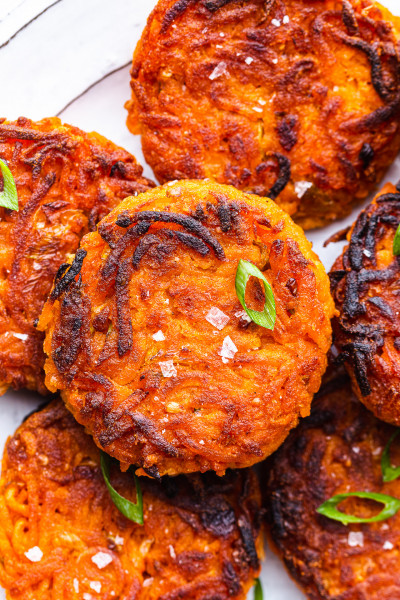
Sorry for the delay, but I was on holidays. Yes, they will work but they might be a little overly soft once out of the oven as those in tins tend to be almost overcooked. Ania
Yes, you are correct, I only use oil to fry the aromatics. I don't tend to use a lot of oil but I feel that some is nice or else the dish will dry out too much, but having said that you are probably used to no oil cooking so it may not be an issue for you. Hope you'll enjoy my take on this Greek classic. Ania
I would love to help, but I am unsure what it is that you mean by saying 'marinated recipe'?
Most Gigantes plaki recipes require you to cover the dish with aluminum foil while it bakes in the oven, but that doesn't seem to be necessary. The consistency was just right after 1 hour in the oven.
I used fresh tomatoes rather than canned ones and doubled the amount of tomato paste to compensate for the less intense tomato aroma.
This recipe looks delicious. Do you shell the beans before cooking them or do the shell come off during the cooking process?
I don't shell them at all, I don't feel that there is any need to be honest with you, but feel free to override me. Cheers! Ania
Oh, no, I am so sorry to hear that. I assume you have used the same type of beans as I did, so the only reason that comes to mind is that you might have been sold really unfresh beans perhaps? Sorry I cannot be of more help. Ania
Do you cover the dish while it bakes in oven?
Thank you,(another) Anita
Great, I hope you'll like it. I didn't as I liked them a bit dried up on top, but if you prefer them more saucy you could do that for sure.
PS: It's Ania, actually :)
I haven't tried myself, but it should work the same. They will need a shorter cooking time before you mix them into the sauce. Good luck! Ania
I am going to make this recipe for my family and husband
Thanks for sharing
Thanks
Richard
I'm sorry to be the bearer of bad news but I don't think tinned beans will work in this context. The reason being that they need to be not quite fully cooked before they get baked or otherwise you'll end up with a bit of a mash and lack of texture. Hope that helps, Ania
I don't think they will work, I'm afraid as they are already fully cooked and by the time you take the dish out of the oven they will have turned into mash :( Ania
Please can you explain what giant beans are xx